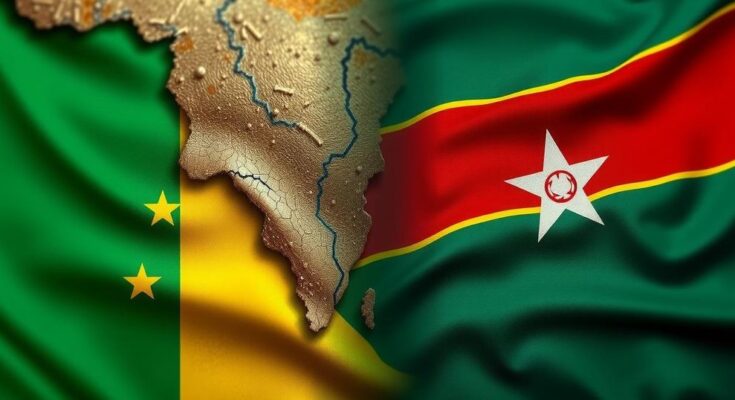Turkey is enhancing its diplomatic presence in Africa by fostering strong partnerships based on its non-colonial history. Turkish Foreign Minister Hakan Fidan will engage with 14 African nations to address regional discussions, including ongoing tensions between Ethiopia and Somalia. Turkey’s investments in local infrastructures and military cooperation have positioned it as a trusted mediator in the region. Oil exploration activities and a robust trade relationship signify Turkey’s growing economic engagement in Africa.
Ethiopia has articulated its disinterest in engaging in military conflict over its ongoing territorial disputes with Somalia, reaffirming its preference for diplomacy. With the Horn of Africa being a focal point for diplomatic engagements, Turkish Foreign Minister Hakan Fidan is scheduled to convene with representatives from 14 African nations in Djibouti on November 2nd and 3rd. This meeting aims to address various regional issues, including the aforementioned tensions between Ethiopia and Somalia, which have been exacerbated by disputes over maritime access since June. Historically, while the Ottoman Empire had a presence in Africa, the modern Turkish Republic has positioned itself as a non-imperialist ally. Turkey’s involvement in the region has been characterized by extensive investment in local infrastructures such as hospitals, schools, and military training facilities, thereby facilitating its role as a mediator in regional conflicts. Recent Turkish oil exploration initiatives off the coast of Somalia further indicate Ankara’s deepening economic engagement in the area. Moreover, Turkey’s growing influence is exemplified by military cooperation agreements with over 25 nations in Africa and its significant arms exports to the region. Diplomats believe that Turkey’s longstanding non-colonial stance contributes to its growing popularity as a diplomatic partner in Africa.
The geopolitical landscape surrounding the Horn of Africa has been increasingly complex, with Ethiopia and Somalia historically engaged in disputes over territorial and maritime rights. Diplomatic efforts are now being led by Turkey, which has cultivated a non-colonial image that appeals to many African nations. Since the establishment of a formal partnership in 2008, Turkey has expanded its diplomatic and economic ties across the continent, enhancing its role as a mediator in regional disputes. The historical context of Ottoman rule followed by a modern Turkish Republic has uniquely positioned Turkey as a partner sought after by African nations eager for collaboration free from the burdens of colonialism. As Turkey invests in critical infrastructure and builds military partnerships, its influence continues to grow, positioning it as a key player in regional stability and economic development.
In conclusion, Ethiopia’s current stance reflects a commitment to diplomatic solutions over militaristic approaches in its disputes with Somalia. Turkey, leveraging its non-colonial history and active diplomatic initiatives, serves as an important mediator within Africa, particularly in the Horn of Africa. Its extensive investments and military collaborations across numerous African nations underscore its ambition to be a leading partner in fostering regional stability and economic growth. As Turkey continues to expand its influence through both soft and hard power, the future of its relations within Africa appears promising, with an emphasis on mutual development and conflict resolution.
Original Source: www.arabnews.com




